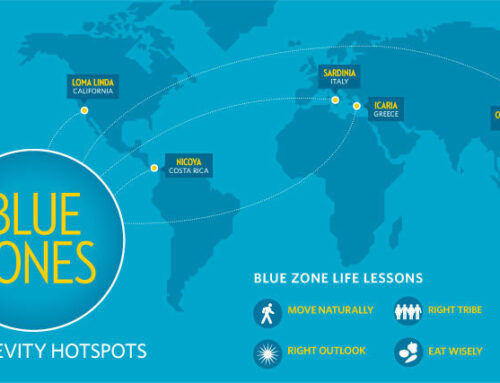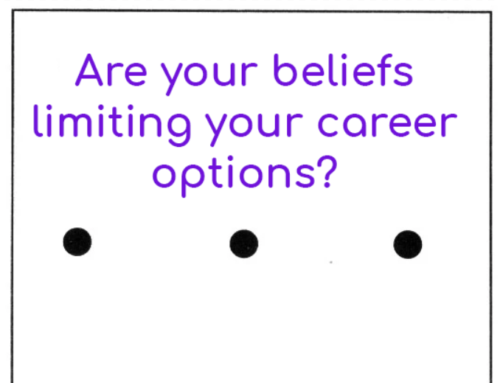Reaching out to people who do interesting stuff, or conducting ‘Informational interviews’ as it’s also called, proved to be the most useful thing I did when I went through my last major career change. It resulted in me discovering coaching, which is by far the most enjoyable career I’ve ever had.
This is why I urge you to seek out informational interviews if you’re looking to change career, even if you’re not sure what you want to do.
Whether you think you know what you want to do next, or you have no idea, having conversations with people who actually do the role in question, will give you the facts and insights you need.
You need these in order to either eliminate possibilities, that would have otherwise clogged up your mind, OR in order to feel a stronger sense of interest and excitement about the role, which will then allow you to take the next steps.
As a bonus, 8 out of 10 new roles are found through networking, so especially if you’re making a career change into a completely new field and therefore lack the necessary background or qualifications, having a strong network is invaluable.
You might ask yourself why people would want to help you? Well, in my experience people like to give advice and they like to be helpful. Furthermore, most people like recognition as well as getting the chance to talk about themselves. This all plays in your favour if you approach informational interviews in the right way.
If the idea of reaching out to people makes you feel nervous, I completely understand. My hope is that this article will give you everything you need to make the experience as rewarding and enjoyable as possible.
Let’s start.
How do I find these people?
You will be amazed to learn just how many people are already part of your ‘network’, even though you hadn’t thought about them as such.
First, look for the people closest to home. Ask the people in your immediate network (family, friends, previous colleagues, friends of your family etc.), if they know someone who works in the industry or role you’re interested in. Even if you’re only mildly intrigued by it, you have to start somewhere.
These are the low-hanging fruit, and these people are very likely to say yes to a call or meeting as they’re close to you or close to someone who is close to you. This is how I had my first valuable conversation, with a lady who coached and trained employees in my partner’s company.
The next thing I did was to look at my connections on Facebook, Linkedin, my alumni and my email list, and voila, I realised someone I studied with 12 years ago was now working in a coaching organisation.
After speaking to him I thought I’ll ask if he knows someone else that would be interesting for me to speak to, and he promptly recommended one of his colleagues working abroad. As you can see, this is how the ball started rolling.
The other thing I did was to ask several of my friends, if they knew anyone in coaching.
Notice how the network now drastically grows: most of us have roughly 150 connections we could approach directly. If each of our connections equally has 150 connections, this means we now have access to 22,500 people! (if that’s not a huge number of people I don’t know what is).
The last way of finding interesting people involves seeking out the places where they would hang out – this includes conferences, evening courses, meetups, clubs, online or in the real world.
I remember going to a couple of exhibitions on self-improvement, as well as enrolling in a weekend coaching course. The people I was able to speak to there probably provided the biggest takeaway, more so than the exhibition and course content, so I can highly recommend doing this while you’re still working in your current job.

How do I go about approaching them?
Particularly with the people that are not closely connected to you, how you approach them is key.
Remember that it’s a numbers game, so if you reach out to 50 people, you should be happy to have conversations with 5.
When I did this, I got the biggest response rate with messages that comprised all these elements:
- Friendly and informal tone
- Making the other person feel special (why am I contacting them specifically?)
- Mention any similarities you might have (check out their Linkedin profile) to establish a bond
- Be honest and authentic about where you’re at and what your concerns are (vulnerability is attractive)
- Be humble and thankful
- Be specific about what you want (people are busy and don’t have time to guess)
- Make it easy for them
Here’s a template you can edit to fit your particular situation:
Hi Joe,
I’m Christine, we’re connected on Linkedin and I noticed you work in Thrive Coaching. Your background in companies with a sustainability focus is also remarkable, and I can see you also graduated from Warwick University, as did I, what a small world!
I’m currently doing a complete career re-think, and I’m really interested in learning more about what a career in coaching looks like. I’d be incredibly thankful if you could spare 15 min of your time on the phone, so that I could ask you a few questions to find out more about what it’s like to work in this industry? Including the good and the bad 🙂
It would really mean a lot, and of course I’d be happy to help you in any way I can.
Thank you in advance, and do let me know any time that would be convenient to you.
Best, Christine
Needless to say, if you get a positive reply, you should make the entire experience as pleasant and hassle-free for the other person as possible. Let them decide the day and time for the call or meeting, and make sure you pay for their coffee… most importantly, do your homework!
How to prepare for the interview
Get the most out of your limited time with them, and don’t annoy them by asking questions you could have found the answer to online.
Make sure you read through their Linkedin profile and any other online profiles or social media accounts, thoroughly. If they write any industry-specific articles, read a couple of them.
Can you see what discussions they get involved in online? What matters to them?
Doing your homework means you not only make a great impression in front of someone who could become a lifelong industry friend, but your questions have the potential to reveal much bigger insights.
The aim should be to have an organic conversation, but having a list of questions in front of you, with your top 3 listed first, is helpful.
Here are some ideas:
- What are the top 3 things you love most about your job/ industry?
- And what do you dislike the most?
- What did you wish you had known before you started on this career path?
- Where do you see yourself going in the future? Are there different avenues you are considering?
- Looking back, how did you get here with the limited experience you had up until that point? (if relevant)
- What kind of people tend to do well in your industry?
- What’s the biggest career lesson you have learned over the past few years? What about the biggest lesson relating to your industry?
- Can you think of anything else that would be interesting for me to hear?
- In particular, do you know of any book/website or other resource that might be helpful?
- Do you know someone else that would be interesting for me to talk to?
During the interview
This experience might be as new to the other person as it is to you. So relax, smile, and start off by thanking them for taking time out of their busy schedule.
It can also be a good idea to make it clear you’re not there for a job (I found on a couple of occasions the person seemed to have this at the back of their mind).
Start asking some of the more positive questions to break the ice, but also say you want the ‘gritty bits’, the more negative aspects of the role or sector.
Show the person you’re speaking to that you respect and appreciate their time. Keep an eye on the clock and get ready to wind down as you approach the time you agreed on.
I often found that I got a lot more time than I asked for (sometimes more than 60 min), as once people get going, they love talking about themselves! Just be mindful of any signals they send out.
After the interview
Make sure you thank the other person for their time and effort, and if possible, point out a particular piece of advice they gave you which was most helpful.
People love to hear they’ve been helpful, and you never know, pointing out what was particularly helpful might trigger them to remember another person or source they can connect you with.
Repeat what you should have already mentioned in the meeting, that you would be honoured to help them in any way you can. If your conversation sparked up any ideas as to how you could help them – maybe an interesting article or event you’ve come across, or a person you know they’d be interested in linking up with, then send it over.
If something positive happens a few months down the line, which you can credit the conversation with them, then I’d urge you to thank them again. As mentioned before, people love to follow the stories of people they’ve helped, and it might just spark a new, helpful conversation or introduction.
On occasions, I’ve received an out of the blue thank you message from someone I spoke to months ago about coaching or counselling, having finally found a great role. It’s a thrill to get such news!
Conclusion
I hope I’ve been able to show you that informational interviews can be a powerful strategy on many levels – in terms of gathering facts, insights and ‘a sense’ of a new role or sector.
They’re also vital because they connect you with the right people – there’s a saying that opportunities don’t float in the air, they’re attached to people. I believe that’s true. Connecting with someone who shares the same interests or values as you might start off as just a friendly conversation, but it can lead to lasting friendship, and perhaps even a job later down the line.
What can you do today to reach out to the first person ? Let me know in the comments below!







Leave A Comment